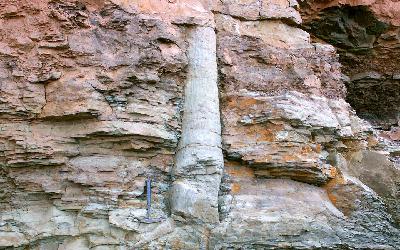Creation Article Podcast
Subscribed: 219Played: 9,464
Subscribe
© 2026 Creation Ministries International. All rights reserved.
Description
Creation.com’s goal is to support the church at large in proclaiming the Truth
of the Bible and thus its Gospel message. We provide real-world answers to the
most asked questions in the vital area of origins laid out in the Book of
Genesis, where the Bible is most under attack today. That’s why we deliver this
podcast. It’s important that people on-the-go learn what God’s Word has to say,
and the arguments that creationists use to rely on the authority of Scripture
and make sense of secular science claims.
of the Bible and thus its Gospel message. We provide real-world answers to the
most asked questions in the vital area of origins laid out in the Book of
Genesis, where the Bible is most under attack today. That’s why we deliver this
podcast. It’s important that people on-the-go learn what God’s Word has to say,
and the arguments that creationists use to rely on the authority of Scripture
and make sense of secular science claims.
261 Episodes
Reverse


























There is definitely a connection between fallen angels and "visiting aliens". Billy Meyer in Switzerland(?) met an alien named Semjase. The same name occurs in the book of Enoch where it lists the names of a number of fallen angels who interacted with man prior to the Flood.
If it was a balloon for the purpose of spying, and one of "an array of 23" of them, where are the reports of the eventual crashes of the other 22 in random places where they were carried by the jetstream winds?
Vituperation? Why? Why use words that 94.6% of your listeners won't know the meaning of and have to look up in a dictionary? Go take a communication skills course, or take that "I'm cleverer than anyone else" chip off your shoulder!
Paradigmatic?! Why use words like that in this article read out by a droning synthesized voice? This is Communication Skills 101: don't use obscure or complicated words where simpler ones will suffice. I had to replay several times to even figure out what word it was saying. And then I had to go look it up in a dictionary, and even now I'm not 100% sure of the intended meaning.
Ugh! This is horrible to listen to. Instead of a human, we have to listen to a synthesized voice droning on and on and on. On top of that, the text it reads includes $50 words that academics use in their papers, when it should really substitute them for $5 terms that the average man in the street can follow. Is it really that hard to edit the text for clarity and then read it out yourself, human?
Sorry to say this, but this episode was terrible, and unfortunately it's not the only one of its kind. It's bad enough to use a computer voice droning on and on monotonously, rather than have an actual human read out the article. But the article is filled with technical terms that are not explained. Like what does "epistemological positivism" even mean? If you want to get your message across, make sure it is engaging and understandable.
Another great podcast! I love how you guys expose the illogical thinking of Peta and other evolution-based organisations.
there is not an episode that gets past me Creation.com helps in making sense in evolutionary chaos.👍❤️✝️ Owls are my favorite bird. This is a fantastic episode👍
"Since Charles Darwin published his "Origin of species" in 1959..." 1959? Come on guys, I know this is just a typo and you do know it's supposed to be 1859, so why aren't you checking each other's work before putting it out there? Anticreationists will question your intelligence and ability to comment on origins issues if you don't get basic facts right.
"the land of the third river... "? You mean the NAME of the third river. Lots of little mistakes like this suggest a second person should check the first person's work before proceeding.
Quoting from Ezekiel "I will cause death to come into these bones... "???? Surely it should be "breath" and not "death". Surely some spell-checking is called for when putting together a podcast, and especially when quoting the Word of God. I don't want to be critical, but yeah I think some constructive criticism is needed. As regards the content of the articles, I think that is great, and I am a long time supporter and consumer of CMI. (since 1992) So keep up the good work guys, but please tweak the issues with these podcasts. :)
From which country is the narrator of this article? His pronunciations here and there are so weird and unlike regular English, as if he goes out of his way to speak differently. I just heard him use the word "differ" repeatedly. But instead of saying "Di-fur" (emphasis on first syllable) he says "di-Fur" emphasis on second syllable. Many other words are weirdly pronounced too, like "sub-Sea-kwent" instead of "Sub-suh-kwent" (subsequent) and "in-Fur-runs" instead of "In-fur-runs" (inference). It's quite grating, and interferes with understanding. I've never heard mispronunciation like this before and can't match it to any particular country or region.
Commenting only on one grating aspect of the presenter's pronunciation and not the actual content... Why does he say "lon gages" instead of "long ages"? I've noticed other pronunciation anomalies too. His diction is otherwise clear, so why these grating anomalies?
I figured Obozo is an idiot but I never actually took it to heart on how much of a moron he really is. Flat earther, and we had one that occupied the White House.
a belief in alien life denies the work of Christ. When sin came into existence, sin infected everything. In Revelation, it states that there will be a new heaven and a new earth. Gen.1 states "In the beginning God created the heaven and the earth." ET'ism is just as much crap as evolution.
I believe the Bible teaches us everything we need to know. Even Paul explained the Gospels to the greeks, we do not know if they had ever heard of Christ, but I do not believe they had any recogning of him. As christians we are instructed to tell everyone the Good News.
people who believe in such non-sense as a pre-adamic time period have NO FAITH IN GOD. Hugh Ross & others like him only teach that the Word of God is a lie.